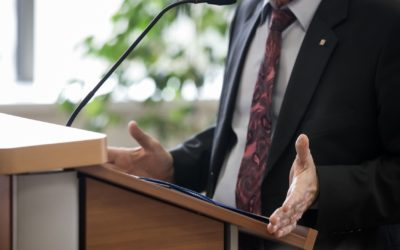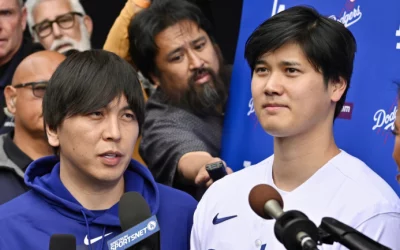Poker Player 2005 – #5 © Copyright 2007, all rights reserved worldwide. Gambling and the Law® is a registered trademark of Professor I Nelson Rose, Whittier Law School, Costa Mesa, CA
It was the New York Times calling, wanting to know what I thought of the nomination of John Roberts to the Supreme Court. My first thought was, “Yes!! I’ve made it!”
Then reality struck me, “Wait a minute.” So, I asked, “Why ask me?”
The reporter replied, “You went to school with him for three years.”
I checked the 1979 Harvard Law School yearbook. There it was: Roberts, Rose… his photo was right above mine.
I’d like to say that John and I were great pals. But we didn’t hang out together. He spent his time at the Law Review office. I spent mine playing poker.
Although we never worked on a case together, John Roberts, now Chief Justice of the United States, has also been involved with gaming law.
In 1999, the U.S. Supreme Court heard one of the most important cases involving legal gambling in years. Federal law prohibits “lotteries” from advertising on radio or television. The Federal Communications Commission was punishing any broadcaster who aired a casino commercial, even for poker rooms.
I wrote about this law in my 1986 book, Gambling, and the Law. I pointed out that casinos are not lotteries. But more importantly, these are state-licensed businesses. I predicted that the Supreme Court would declare that this law violated the Constitution’s First Amendment protection of Free Speech.
The Ninth Circuit Court of Appeals had ruled that the law was unconstitutional when it was applied to prevent Nevada casinos from advertising on Nevada radio and TV. But the Fifth Circuit held that the law prevented New Orleans broadcasters from running identical commercials for Louisiana and Mississippi casinos.
Roberts, then a lawyer in private practice, was hired by the country’s major casino lobbying group, the American Gaming Association, to bring the argument to the High Court. He researched and wrote the brief as the counsel of record for the AGA.
The Supreme Court accepted the position spelled out by Roberts and me, declaring that it made no sense to allow tribal casinos to advertise when privately owned casinos in the same state could not.
Interestingly, President Bush’s second nominee to the Supreme Court, Harriet Miers, who withdrew her name from consideration, also had ties with the business of legal gambling. For five years she was Chair of the Texas Lottery Commission, which also regulates charity bingo. At that time Texas had the seventh-largest lottery in the world.
What does this mean for legal gaming? Probably quite a bit.
Gambling has grown into a big and respectable business, at least respectable enough that being associated with casinos or lotteries is no longer automatic grounds for disqualification from high public office.
The gaming industry makes far more money than better-known businesses, such as motion pictures. Gaming is fairly regularly involved with major cases. A very few have made it to the nation’s highest court: A couple involved tax issues, another dealt with whether New Jersey could regulate unions already covered by federal law, and the most important one declared that part of the Indian Gaming Regulatory Act was unconstitutional. But that decision shows how little the justices knew or cared about legal gaming.
In the Seminole opinion, the Court declared that a tribe could not sue a state unless the state consented. But the Court expressly refused to tell tribes or the states what to do if a state did not consent.
Other cases have been vigorously fought over the question of whether tribes can put in slot-like machines that are technically bingo. Even though the tribes, the federal Department of Justice, and many states asked the Supreme Court to decide the issue, Chief Justice Rehnquist refused. He did not want to go down in history as the judge who decided “what is bingo.”
Chief Justice Roberts is a different man. He understands that legal gaming is an enormously large and legal business. He would also be more interested in the complicated issues surrounding activities like Internet poker. He has shown he is not afraid of making decisions about legal gambling.
END
© Copyright 2007. Professor I Nelson Rose is recognized as one of the world’s leading experts on gambling law. His latest books, Internet Gaming Law and Gaming Law: Cases and Materials, are available through his website, www.GamblingAndTheLaw.com.





0 Comments